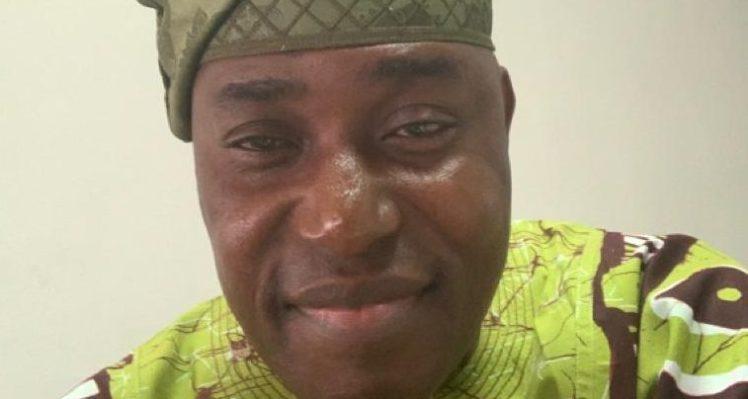Our politicians and political leaders (some of them offspring of our First Republic politicians) are on the march again. They know the story of how the First Republic fell to the Federal Republic of the Nigerian Army in 1966. They are ignoring the warnings of legends such as Bernard Shaw about the implications of ignoring classic lessons of history. They have seen the implications of the Republic of the ‘Soldiers of Fortune.’ They saw how the Second Republic came to harm through their godfathers. They have read Adewale Ademoyega’s ‘Why We Struck,’ yet they have ignored the lessons and impacts of political corruption. They knew that the Third Republic was imperiled by crass opportunism nurtured by rampaging corruption, yet they have ignored the expediency of transparency and accountability in governance system in their Fourth Republic, which began 23 years ago. They have since demonised democracy and redefined it as government of the few rich who can buy votes for the benefit of only the family of the few powerful ones. Within 23 years, they have destroyed the economy of the most populous black nation on earth.
In the last 23 years, Nigeria’s politicians have destroyed the power of the law, which can no longer rule. They are the law. They alone rule. They are above the law. They have ruined the majesty of both the law and democracy in Africa’s most populous nation. They have destroyed the notion that judiciary is the last hope of the common man. Even the judiciary is struggling to tell the people that justice is indeed blind. Yeah, our new political leaders have built the electoral justice system that can give them the democratic mandate that the people deny them. The legislators in the house our founding fathers built are being freely called ‘legis-looters’ and they cannot deny the cognomen. Those who have exercised executive powers in the last 23 years have been tagged ‘execu-thieves’: they can’t remove the emblem of shame from Google and the people’s hearts. The currency they have given us has destroyed everybody’s purchasing power. They have no answer. They are clueless and cruelly so about the strong room of governance called the civil service. They have tagged that ‘evil service.’ The current Chief Executive of the Federation and Commander-in-Chief of the Armed Forces was our Petroleum Resources Minister 46 years ago.
Incredibly as it may sound, 46 years on, he is still the Petroleum Resources Minister and President. Yet the oil sector on his watch has become the world’s most curious cesspool of corruption. The country that in January 1976 mounted a rostrum on behalf of Africa in Addis Ababa, Ethiopia and declared to the powerful G-7 leaders to ‘leave M.P.LA, Angola alone’ because ‘Africa has come of age, is no longer a strong voice even in its West African region. The military firepower that even the United Nations used to rely on to defend the flash points in Africa has lost its classic mojo. Our soldiers and police operatives and officers are being killed and humiliated by rag-tag non-state actors we call ‘terrorists.’ Tertiary education quality that once attracted students from even the United States has become a symbol of ridicule and our political leaders ask academic leaders and their scholars to die of hunger for crying out against rot in the system. Never in the history of governance system have a people become so helpless to change the principalities and powers that have held and let them down!

That is why as they want to begin the campaign this week, there is a responsibility to remind the political leaders that they are on the march again and the foundation of the democracy they seek to deepen is already rickety and people no longer have confidence in it. We need to remind them that the older people are beginning to notice some striking similarities between the corrupt politics that led to the fall of the First Republic and the ‘politricks’ they have entrenched. The politicians who have been abusing their opponents instead of reading and researching history books of what led us to this sorry pass should note what the spirit of good journalism and civil society is telling them, lest they will crash this Republic and there will be jubilation all over.
The politicians who are seeking to lead us from May 29, 2023, should note this contextual reporting of history of the fall of the First Republic as chronicled by credible scholars who posit that: there are always many levels at which a complex social phenomenon can be explained and understood. To begin at the surface, the First Republic was overthrown because the people lost faith in it — not because some disaffected colonels were worried about their careers, not even because a disaffected ethnic group was worried about its position in the Federation. The former worry may have existed, and certainly the latter did. But they explain neither the success of the coup attempt nor the outpouring of joy and relief that greeted it across the country. The First Republic’s loss of popular legitimacy was a remarkably deep and broadly based — and, by the end of 1965, thorough — phenomenon.
‘In short, the rulers used the power that they held constitutionally to do unconstitutional things. In the process they destroyed themselves. Nigeria had censuses that were not censuses, elections that were not elections, and finally governments that were not governments.’ This was a Nigerian opinion in February, 1966. There are lessons here for our ‘politiricians.’
Professor Jibrin Ibrahim, a columnist, sounded a similar warning in 2015 in an article on election lessons in which he drew copious lessons from the same First Republic. He quoted a credible authority, Larry Diamond whose thought also triggered today’s intervention – the fire today’s politicians are trifling with. According to Prof. Ibrahim then: ‘The 2015 Nigerian election is turning out to be as acrimonious, bitter and a hateful play of brinkmanship that could derail our democracy as that of 1964. It has the potential of threatening the survival of our country…’
As the 2023 election is barely five months away, we need to reflect on what we did wrong that led to the collapse of the First Republic and subsequently the emergence of the civil war. Doubtless, a useful guide on this as Ibrahim pointed out in 2015 is Larry Diamond’s book, ‘Class, Ethnicity and Democracy in Nigeria: The Failure of the First Republic.’ It’s a good resource on the failure of the First Republic. The classic reveals layers of the dynamic interplay of class, ethnicity and regionalism that was bound to lead into only one outcome, system collapse. The print edition is available in Nigeria and the digital copy is available online. Reproduced below are excerpts and summaries from the chapter on the 1964 historic election.
The author draws our attention to the fact that Nigerian politicians have a history of v and fecklessness. In fact, ‘The Daily Express’ editorial of December 28, 1964, had argued that the crisis in the country was the result of the inordinate ambition of some politicians. Debating the crisis in a formal colloquium in London the same week, Nigerian students also concluded that politicians rather than the constitution had failed. Diamond argues that the failure was too easily attributed to the ethnic question. The reality, however, was that ethnicity was the construction of politicians and not the eruption of popular sentiments. He draws attention to a survey carried out in 1963-64, which demonstrated “surprising levels of inter-ethnic tolerance and acceptance among the ethnically heterogeneous workforces sampled.”
The core argument of Diamond is that the First Republic collapsed because there was no respect for the core principle of liberal democracy – free and fair competition for power through elections. For many years, regional governments were violating the spirit and increasingly the letter of this basic principle, until each region had become a virtual one-party state. He points out that the degree of overt repression, especially in the North, and the subjugation of the Action Group through manifestly fraudulent and partisan use of Federal emergency power were fundamentally inconsistent with liberal democracy. The 1964 Federal Election erased most of what remained of the democratic character of the system. And that set the tone for the collapse of democracy and federalism two years later (in 1966).
In other words, the ‘soldiers of fortune’ did not jump into the political arena in January 1966: they were dragged in. In 1964, southern university students, concerned that the Northern Peoples Congress (NPC) was manipulating the electoral process called for a three-month Army takeover to organise the elections. Immediately, after the elections, United Progressive Grand Alliance (UPGA) opposition leaders began talking of secession and vowed, in the aftermath of the election, not to accept the authority of any government based on its outcome. Indeed, UPGA militants felt betrayed when President Azikiwe finally conceded to Sir Abubakar’s authority. From then on, political leaders throughout the Eastern Region, and unarguably the bulk of their followers, would not recognise any NPC federal government as legitimate in its authority, though they would, for utterly pragmatic reasons, grudgingly accept it. Such alienation and cynicism were also growing in the Western Region, where ‘the Nigerian National Democratic Party (NNDP) by a mixture of persuasion, force and fraud, secured a larger number of seats but in doing so intensified popular support for the AG.
Perhaps most ominously, the election crisis drew the Army into political conflict more fully than ever before. Though the army sided with the Constitution and attempted to remain as far above the conflict as possible, it had been forced to take sides. And increasingly, the Army was being called upon to quell and contain the unrest that the politicians had generated, which meant using its coercive power and authority in support of the NPC Federal Government. More and more, the Army was coming to be seen as the only force capable of refereeing political conflict. If many politicians and opinion leaders were maintaining that only the Army could fairly and efficiently administer the elections, what were the officers themselves to think? In fact, it appears that a number of middle-ranking officers, including perhaps three Lieutenant Colonels ‘seriously discussed whether the military should intervene to resolve the crisis’ Diamond, argued in this seminal piece.
Following the election, crisis broke out on January 1, 1965, when the contents of a speech to be delivered by President Azikiwe were revealed. The core issue was that Azikiwe vowed to prevent the Prime Minister from forming a new Government on the basis of the election results. Reviewing the repeated frustration of attempts to ensure a free and fair election, and Sir Abubakar’s rebuff of his request for postponement and UN supervision, he said they had finally agreed to allow the Federal Electoral Commission (FEC) to take ‘appropriate action.’ But when the FEC failed to postpone the election and three of its members resigned, he felt morally compelled to reject the election result (and by extension, Sir Abubakar’s entitlement to form a new government). The Prime Minister’s response was that postponement of the election had never been discussed between them; that only the FEC could call off the election and only the courts could remedy irregularities…
Before we round off the details in this history next week, let our politicians reflect on the words of a Spanish philosopher George Santayana that, ‘Those who cannot remember the past are condemned to repeat it.’
Stay ahead with the latest updates!
Join The Podium Media on WhatsApp for real-time news alerts, breaking stories, and exclusive content delivered straight to your phone. Don’t miss a headline — subscribe now!
Chat with Us on WhatsApp





